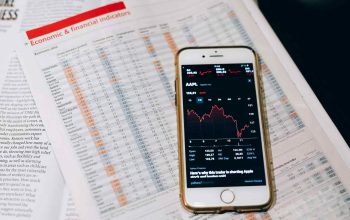A brief history of stock trading
Stock trading has a long and colorful history. You can trace it back to the beginnings of capitalism. In the early days of commerce, businesses would issue stock to raise capital. The first recorded instance of stock trading took place in 12th century France, where shares in a newly formed business partnership were bought and sold among investors.
However, the modern stock trading concept did not emerge until the 16th century. In 1531, the Belgian city of Antwerp established a system for buying and selling shares in local businesses. This system quickly spread to other European cities, and by the early 1600s, stocks were being traded regularly in London, Amsterdam, and Hamburg.
During the 18th century, New York and Philadelphia became the first formal stock exchanges. Stock trading was now a worldwide phenomenon by the end of the 19th century.
Today, stock trading is a global industry worth trillions of dollars. With the advent of online trading, it has become easier than ever for people to invest in stocks. And as the world economy continues to grow, the stock market will likely continue to flourish.
How it works today
In the past, you traded stocks exclusively on physical exchanges between brokers. This process was slow, expensive, and required a certain degree of expertise. Today, however, the vast majority of stock trading is done electronically.
This means that trades can be executed much more quickly and cheaply. It also means that even novice investors can get involved in the stock market. Thanks to online brokerages and trading platforms, anyone with an internet connection can buy and sell stocks with just a few clicks. Of course, this convenience comes with some risks.
Since trades are executed automatically, it is easy to make mistakes—or to fall prey to fraudsters who take advantage of electronic trading systems. Nevertheless, the benefits of electronic trading have made it the preferred method for most investors.
The benefits of stock trading
Many people view stock trading as a high-risk proposition, but many reasons to consider it a viable investment strategy. Stocks are one of the most liquid assets available, which can be quickly sold or converted into cash. This flexibility can be helpful in times of economic uncertainty, when other investments may be less liquid.
Additionally, stocks offer the potential for high returns, which can help to offset the risks associated with other investments. Stocks also provide diversification to protect investors from losses in other parts of their portfolios.
The risks involved in stock trading
For many people, stock trading represents a significant source of income. Be aware of the risks involved in this activity. One of the most notorious risks is that of market fluctuations. The value of stocks can rise and fall rapidly, leading to losses for investors.
Another risk is that of fraud. There have been instances where companies have misrepresented their financial situation to attract investors. It can lead to people losing a great deal of money. It is also essential to be aware of the tax implications of stock trading.
For these reasons, it is essential to consult with a financial adviser before engaging in stock trading.
How to get started with stock trading
Stock trading can be a great way to earn money, but it can also be risky. Before diving into the world of stock trading, it is crucial to understand the basics. First, you need to choose a broker. Some brokerages cater to all experience levels, from beginners to advanced traders.
Once you’ve found a broker, you’ll need to open an account and fill it with money you’re willing to lose. Research the companies whose stocks you are interested in and develop a strategy for buying and selling.
You need to monitor your positions and make adjustments. With careful planning and execution, stock trading can be a profitable endeavor.
In conclusion
Business, commodities, and investing are constantly changing. For ages to come, it will be an aspect of everyday life. Will it dominate the world? We’ll have to wait and see if that’s the case, but one thing is sure: trading will remain popular for a long time, regardless of the form it takes and the methods we use.







